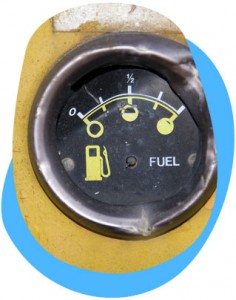 Cars don’t have to mean petrol. Alternatives have existed for years; what has been missing is the political and economic will to make these alternatives available to all. We’re now at the exciting stage where this will is beginning to emerge.
Cars don’t have to mean petrol. Alternatives have existed for years; what has been missing is the political and economic will to make these alternatives available to all. We’re now at the exciting stage where this will is beginning to emerge.
Electric vehicle market grew 19% in 2018 with almost 60,000 new plug-in electric cars registered in the UK. Cities saw the greatest rise in pure electric only cars registrations – which is good news for urban air quality.
Sust-it provide more information about the range of alternative fuels suitable for domestic and commercial vehicles.
Electric vehicles reviews
EV vehicles are starting become a real alternative to the internal combustion engine. Sust-it have recently road tested both electric cars and motorcycles, their independent Electric Car reviews can be viewed here:
Electric cars pros and cons – Kia Soul EV review and real world battery range test
Long-term with the Mercedes 250e electric
- Zero exhaust fumes, and silent! – this technology could transform our cities.
- Very cheap to run.
- Generating electricity causes pollution – but at least it’s easier to make sure that one power station is running cleanly than thousands of private cars. Ideally, all power for electric cars should come from renewable sources.
- It’s still early days – prices are higher than they might be, vehicles are now starting to become widely available.
- Home charging is best option, public charging points a starting to appear across the UK.
- Battery technology is improving all the time, but the big limit on electric vehicles is still the range – think tens of miles between charges, rather than hundreds.
Is an electric car right for you?
Practical advice on EV ownership.
Liquid Petroleum Gas (LPG)
Liquid Petroleum Gas (LPG) is a blend of propane and butane, produced either as a by-product of oil-refining, or from natural gas (methane) fields. As an alternative fuel it is most suited to use in cars and light vans, rather than heavy vehicles. More information on LPG from the LP Gas Association.
Biogas
Biogas is derived from rotting municipal waste, food waste or sewage (both human and animal). This is turned into gas by means of “anaerobic conversion” in a digester. Organic matter such as switchgrass can be grown specifically for biogas production. According to the Energy Saving Trust Sweden has “the largest fleet of biogas-fuelled vehicles in the world, with around 7,000 vehicles in the country and plans to increase this number to 80,000 by 2010.” In the UK, the number of refuelling stations linked to the HGV industry is increasing.
Biodiesel / vegetable oil
When Mr Diesel first designed his engine, petrochemical diesel wasn’t even available. So it’s no surprise that modern diesel engines can run on alternative fuels.
One option is biodiesel, which is vegetable oil, processed to make it run in standard diesel engines, which has many advanatages:
- Vegetable oil is ‘carbon neutral’, because the carbon dioxide produced when the fuel burns was absorbed when the plants were growing.
- Engines using biodiesel are said to run smoother and last longer.
- Most biodiesels can be used mixed with ordinary diesel – there’s no need for a separate tank. Pure Biodiesel who supply 100% biodiesel in the Stround area provide more information.
- Biodiesel fuels are available now from fuel stations throughout the UK. All brands on offer can be used in any diesel engine, and contain anything from 5% to 100% biodiesel.
- Goldenfuels is a waste-oil biofuel company based in Oxford, who can supply more information.
However, there are environmental costs in growing oilseed rape (possibly genetically modified) or other plants for biofuels. These could outweigh some of the benefits. In particular, the amount of land required to produce enough biodiesel to replace current fuel use, assuming current levels of mileage, is enormous. It would not be feasible to use so much land for biodiesel. It would also mean using land that is needed to grow food for people or destroying wildlife habitats. Reusing old oil, e.g. from fish and chip shops, is a possibility.
For the more adventurous: straight vegetable oil can be used as fuel instead, but in this case the engine itself may need to be modified. It is possible to reuse old oil e.g. from fish and chip shops.
Bioethanol
Bioethanol is derived from starches or sugar, for example corn or sugar cane, by fermentation and distillation. A blend of 5% bioethanol with 95% petrol can be used in all petrol engines and reduces carbon dioxide emissions by 3.5%. Petrol engines can be modified to run on up to 85% bioethanol. Car manufacturers are beginning to produce vehicles that can run on all blends up to 85% and the availability of bioethanol in the UK looks set to increase. In Brazil 60% of new cars sold are 100% ethanol fuelled and it is the world’s largest producer of bioethanol, with 45% of all fuel used in cars there being bioethanol.